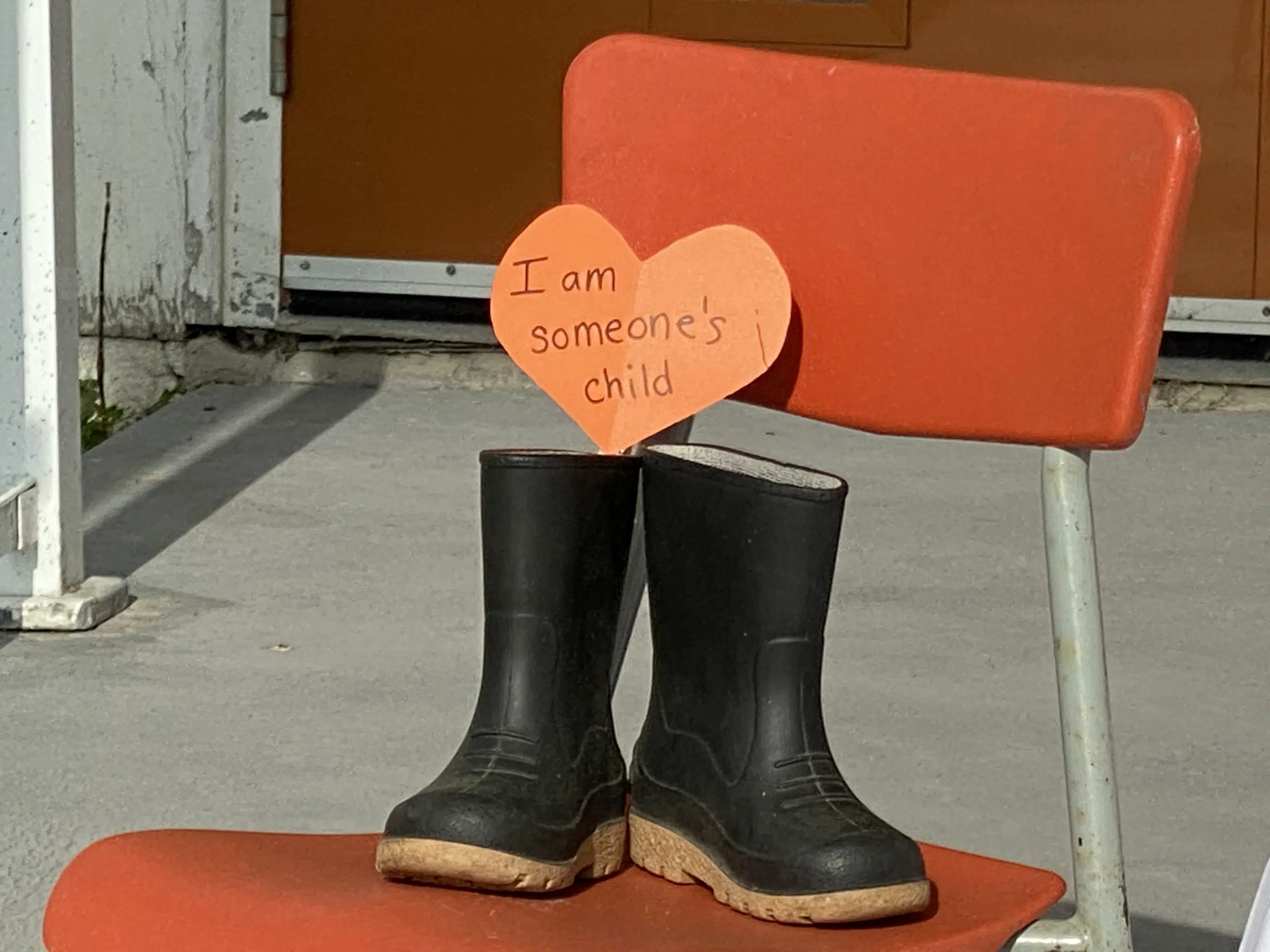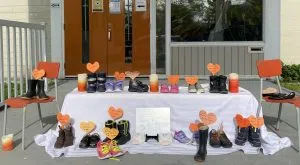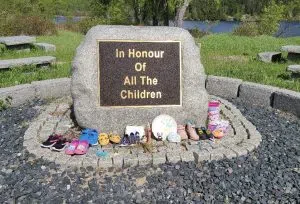
One of the many pairs of shoes set up at Dryden's First United Church/Staff Photo
The effects of the recent finding of 215 children’s remains at a former Residential School mass burial site in Kamloops, British Columbia are being felt all across Canada and here at home in Northwestern Ontario.
“My mother was a residential school survivor, I have many relatives that attended residential school, aunts and cousins,” said Executive Director of the Dryden Native Friendship Centre Cheryl Edwards. “My husband also attended a day school, so this did bring up a lot of memories and some of those memories are very, very hurtful. The abuses and the trauma, that’s all still being processed today.”
As a gesture of solidarity, Friendship Centre staff were invited to an acknowledgement by Dryden’s First United Church this week.
“I found it very uplifting that it wasn’t us as an Indigenous organization to take the lead on that, it was a church that acknowledged this was very wrong what happened, their shock and their sadness. To me, that says understanding is happening. Many organizations have their flags at half mast and the majority of people that I saw Monday and even through the week are wearing orange shirts. So the education is there and at the same time it’s such a somber feeling in many ways, to try and support so many individuals in different parts of the country going through the same thing.”
The DNFC Executive Director and City of Dryden Working Circle member also joins numerous other Canadian leaders calling for further examination at all former residential school sites.

Staff Photo
“When we look at how many residential schools there actually were, this was only one example. If there were more investigations into the other 139 sponsored by government and the number of residentials schools that were privately ran, I’m sure that number (215) would be a lot higher.”
Edwards continues, “Many of our residential school survivors are still here, many are getting older and as difficult as it may be to see those discoveries there has to be some closure in that way. There has to be the proper ceremonies, the proper practices with those children that their life was cut short. If they did not even enter that system, they may very well still be still here. That’s the sadness that goes with that experience and even though it will be a painful process, I believe it should happen and then we can deal with our grief in the way that we need to.”
Going forward, Edwards stresses more action is needed to implement the Truth and Reconciliation Committees’ 94 recommendations.
“Some of the commitments the Federal government has mentioned, they have not totally followed through with what is necessary. We need to be able to hold that government in particular accountable for their role in the tragic ways that Indigenous people were dealt with. It was an agenda, now they need to acknowledge that it was a genocide and we need to come to terms with what that means for their responsibility.”
An array of orange and displays of shoes have been set up at Dryden’s First United Church and the McIntosh Residential Memorial Site, with more welcome to be added, in recognition of all the children who attended residential schools and those who didn’t make it home.
If you’re a residential school survivor, you can contact the 24-hour National Crisis Line at 1-866-925-4419 for support.

Photo Submitted To CKDR Staff









